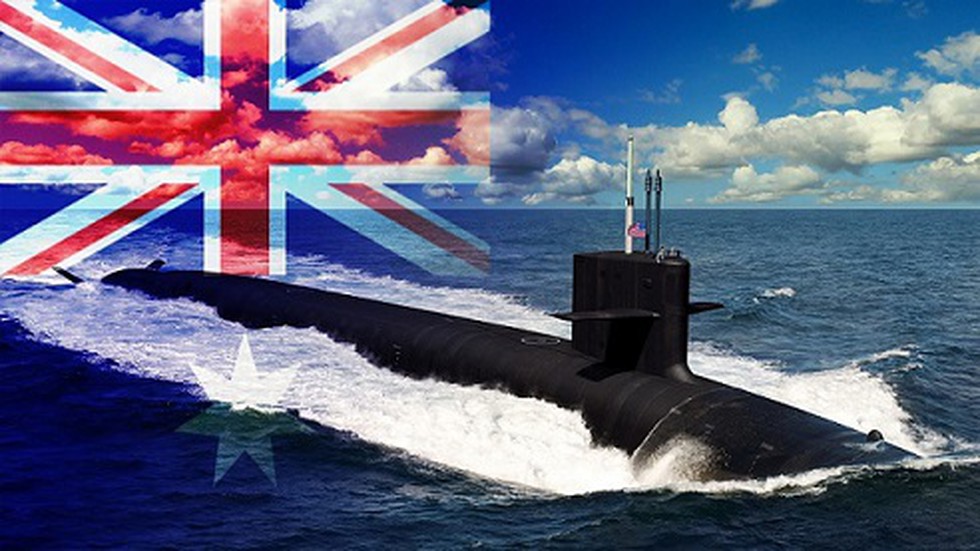
Andrew Fowler’s book Nuked: The Submarine Fiasco That Sank Australia’s Sovereignty (Melbourne University Press, 2024) was not written by a member of the peace movement. That is both a strength and a weakness. A strength, because Andrew Fowler is an award-winning investigative journalist, who has worked in mainstream Australian current affairs TV. So, it can’t be dismissed as “anti-American, anti-military” propaganda.
But it is a weakness because the author never questions the basic tenet of the book’s subject—why does Australia need any submarines at all, regardless of whether they are conventionally powered or nuclear powered. The book’s focus is a forensic analysis of who won the highly lucrative battle to supply Australia’s new subs—it was all set up to be France but then, after hidden, sub-surface maneuvering worthy of one of the book’s subjects, Australia and the U.S. torpedoed the French and did a deal among themselves.
This book is about AUKUS (Australia, UK, U.S.), the new kid on the “Indo-Pacific” block—although it should be pointed out that the UK is an awfully long way away from either the Indo or the Pacific. It is an attempt to build a new Western military alliance, initially between those three countries but with the prospect of other countries (including New Zealand) joining the ill-defined AUKUS Pillar Two at some unspecified time in the future. But let’s not get ahead of ourselves. The book is about the birth of AUKUS, which is all about submarines.
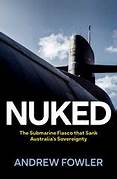
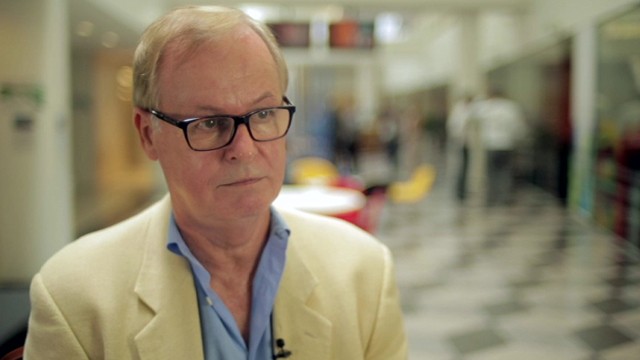
AUKUS
I’ve written about AUKUS previously in Covert ActionMagazine, so I refer you to that for the back story. In 2016 Australia signed a $A50 billion contract for France to build it 12 state of the art conventionally powered submarines for the Australian Navy. It was the largest defence contact in the history of both France and Australia. The right-wing Liberal Party was in Government in Australia, headed by Prime Minister Malcolm Turnbull.
To quote the book: “There were those in high office, particularly in the intelligence agencies, who were wary of Australia becoming too close to France and shifting away from the countries they saw as Australia’s natural philosophical, political and strategic allies: the United Kingdom and the United States. The French deal, they believed, added fresh complications to Washington’s plans to contain China’s rise. Instead of the old Australia-U.S. axis, France would now have to be directly played into the mix.”
“It was a perceptible move towards a more independent foreign and defence position for Australia—hardly revolutionary, but disturbing for the hardliners in Washington and Canberra. A deal with France would certainly unshackle Australia and, as Turnbull argues, allow the nation to maintain its sovereignty. France, after all, had its own nuclear strike force, separate from other members of NATO, and had refused to support the United States in many of that country’s foreign policy forays, in particular the disastrous war on Iraq. Australia, it seemed, had the opportunity to head down a similar independent track.”
Those hardliners swung into action. The book names names—the man who fronted the deception and betrayal of France was Scott Morrison, who replaced Turnbull as the Liberal Prime Minister in 2018, in an internal Party coup (a common occurrence in Australian politics). Behind the scenes, the key man was Andrew Shearer, “a vehemently pro-American China hawk” who went on to become Director-General of National Intelligence. Right up until just before AUKUS was announced in 2021, Morrison’s government continued to assure France that it was proceeding with the contract to buy French submarines.
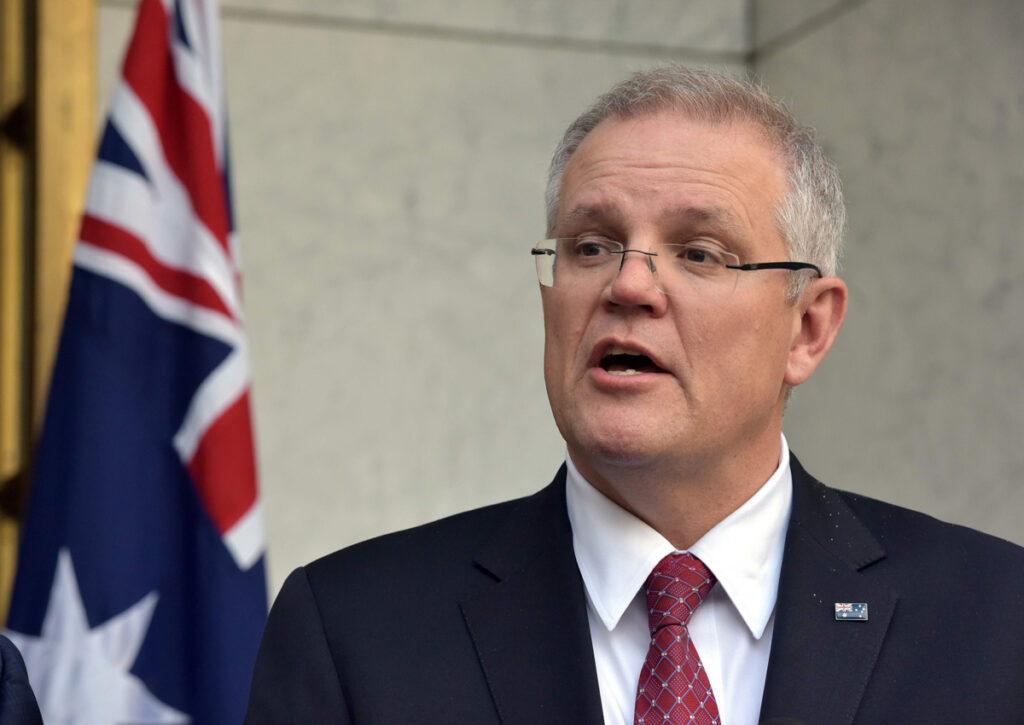
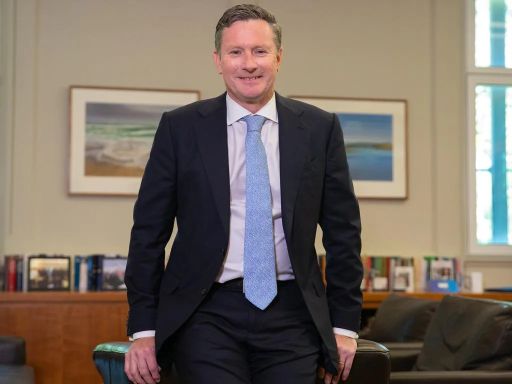
Dumping France For U.S.
Instead of 12 diesel-powered French subs, Australia signed up to have the U.S. and UK build eight nuclear-powered (but not nuclear-armed) subs for its Navy. The cost is astronomical—up to $A368 billion by 2055. Yes, that’s right—those eight subs will not be ready for more than 30 years. The first of them is unlikely to be ready until the 2040s so, to fill that gap, Australia will buy three existing U.S. subs from the early 2030s, at a cost of up to $A58b, with an option to buy two more. This is a staggering amount to spend on one military project from a country with a population of just under 27 million people.
“(AUKUS) was a clear victory for Washington, which had been concerned for some time that France had a different view on how to deal with the rise of China… There was barely a murmur of opposition from the media. Morrison had pulled off a major achievement of what U.S. public intellectual Noam Chomsky describes as the political art of ‘manufacturing consent’…”.
“How did it happen that the bulk of analysis and criticism of the submarine deal came from two former Prime Ministers, Paul Keating (Labor) and Malcolm Turnbull (Liberal) who, though on opposing sides of politics, were united in warning that the submarine deal stripped away Australia’s sovereignty. Journalists were mainly silent on the fact that there were those in government who, for ideological reasons, had wanted to sabotage the French submarine deal right from the start, ignoring the warnings from former Liberal Prime Minister Malcolm Fraser that a close relationship with the United States was dangerous and might not be in Australia’s national interest.”
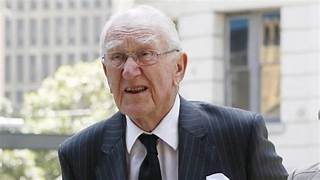
“It was even left to an American newspaper, The Washington Post, to reveal the huge number of former senior U.S. naval staff employed by the Australian government in the submarine selection process. Once Australia switched to the nuclear option, the U.S. military personnel hired by the Defence Department provided Shearer and Australia’s other China hawks with a ready-made bridge to Washington”.
Australia Expected To Fight Alongside U.S. In War With China
There is only the feeblest pretense that these nuclear submarines (still decades away from reality) will be used to defend Australia. Their role will be to patrol close to the Chinese coast, to hem in the Chinese Navy and, in the event of war, to attack China with cruise missiles. That’s the theory, anyway. The advantage of their being nuclear-powered is that they don’t have to return to port to refuel. U.S. hawks expect Australia to fight on its side in any war with China over Taiwan.
One such key hawk is Richard Armitage, who held high-ranking security posts during the 1980s Reagan presidency, and has been an influential Washington figures in the decades since. The book describes a 1999 Melbourne meeting where Hugh White, Australia’s-then Deputy Secretary of Defence, was giving a briefing on Australian defence planning. A journalist present remembers this exchange: “‘That’s all very well, Hugh,’ Armitage cut in. ‘But I don’t really see the force structure you are developing giving you a lot of options to support us when the balloon goes up over Taiwan.’”
“‘Well, Rich’, White says he replied, ‘you’ve got to understand that Australian defence policy is not based on the idea that we support the United States in those scenarios’. ‘Well, they ought to be’, Armitage declared. ‘What do you think this alliance is about?’ He recalled that Armitage ‘in his inimitable way literally, not just metaphorically, thumped the table and said that in the event of a US-China conflict over Taiwan we’d expect Australia to be there.’”
“Armitage had a special relationship with Australia that he built up during the early 1980s when he was Deputy Secretary of Defense for East Asia and Pacific Affairs. As well as the dirty tricks he played on those who questioned the legitimacy of the Iraq War, he heavily courted politicians and any foreigners believed to be rising stars whose politics supported the United States, be they journalists of diplomats. He was reported as saying of Shearer: ‘We look after our own.’”
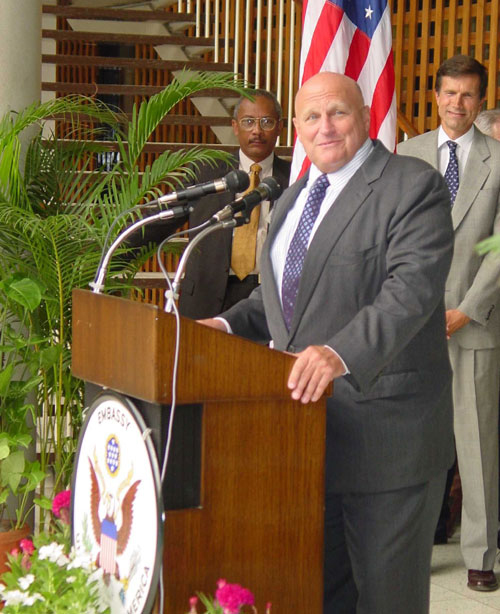
Integration With U.S. Military
There is a lot more to the U.S.-Australia military relationship than some exorbitantly expensive nuclear submarines that may or may not ever materialise. There is the top-secret Central Intelligence Agency/National Security Agency Pine Gap spy base near Alice Springs, in central Australia, which is crucial to the global warfighting abilities of the U.S. There is the North West Cape facility on the westernmost point of mainland Australia, which the US Navy uses to communicate with its nuclear attack subs. There is Australia’s increasing involvement with the U.S. military and intelligence satellite programme, in preparation for war in space.
“Australia’s integration with the U.S. military was, of course, well underway before the AUKUS agreement. As already noted, Pine Gap and North West Cape are part of this. But there is also the basing of thousands of U.S. Marines in Darwin (northern coast), the stationing of nuclear-capable B-52s at Tindal (Australian Air Force base, northern Australia), and the stationing of U.S. military throughout the Australian Defence Force, including from the National Reconnaissance Office at the military headquarters in Canberra… Though Defence Minister Richard Marles has ruled out automatic support of the United States in any war over Taiwan, it is difficult to see how Australia won’t be involved. Pine Gap, Tindal, North West Cape and Perth (Western Australia’s biggest city) will all be integral to the battle.”
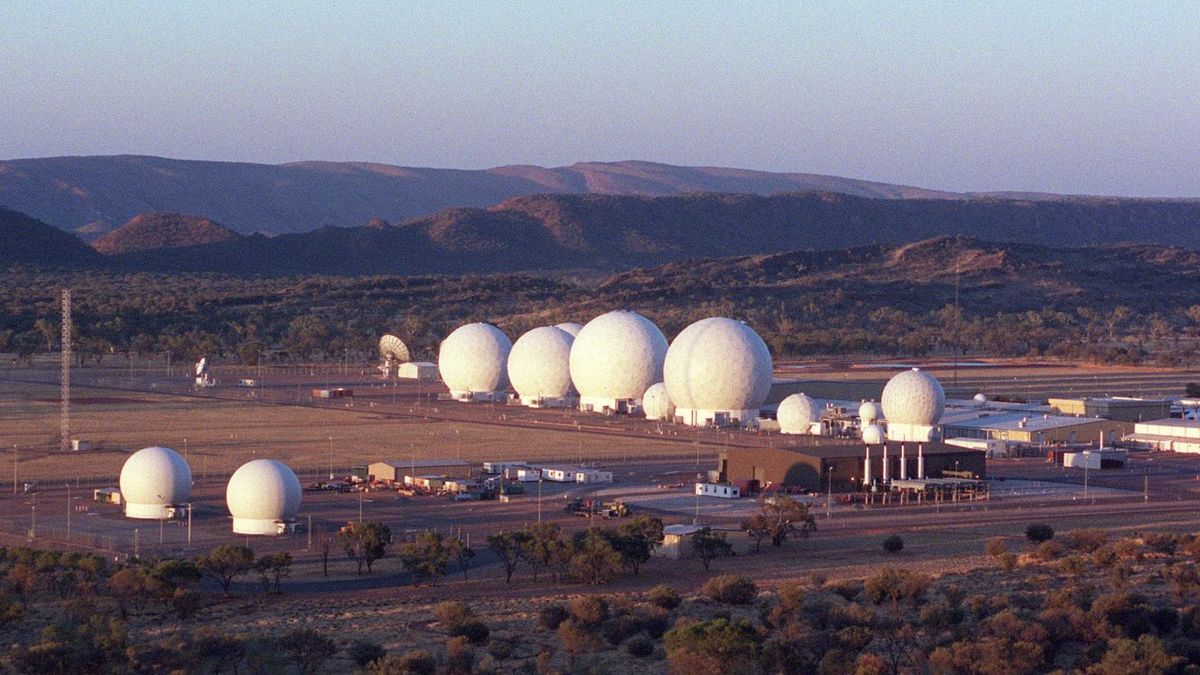
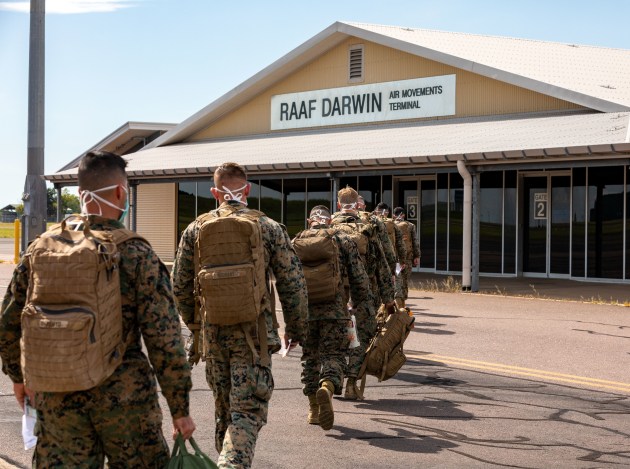
Change Of Government; No Change Of Foreign Policy
Scott Morrison’s Liberal government was voted out at the 2022 Australian election and was replaced by Anthony Albanese’s Labor Party. But Australia’s commitment to AUKUS remained unchanged. When AUKUS was officially launched in the U.S. in 2023, Albanese was there, along with U.S. President Joe Biden and the UK’s then Conservative Prime Minister Rishi Sunak (since replaced in 2024 by Labour’s Sir Keir Starmer, but nothing has changed in the U.S./UK military relationship).
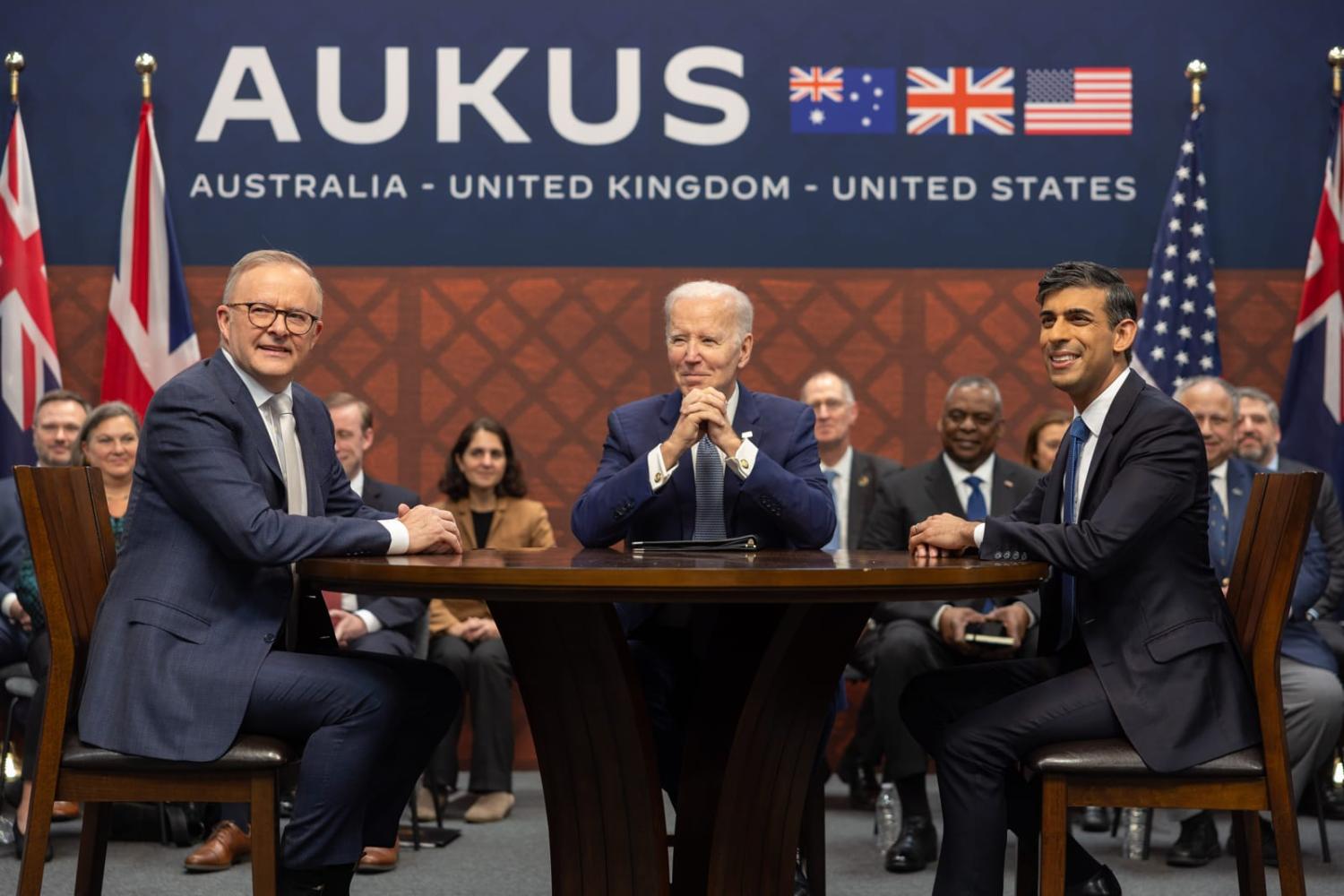
Why did nothing change in Australia with the change of Government? “…Morrison’s government was keen to reinforce the U.S. relationship. The National Security Committee of Cabinet accepted the transactional nature of the relationship (where Australia lost some of its independence); as flawed as that thinking is, it believed it was a price worth paying for what it saw as Washington’s protection. The fact that the increasing U.S. military presence in the Indo-Pacific could draw Australia into a conflict seemed of little consequence in Morrison’s desire to wedge Labor on national security.”
“Morrison was working at achieving what successive Australian Prime Ministers had tried and failed to do: draw the United States more closely into the fabric of Australia’s defence. The closer alliance might cause problems of sovereignty, but Australia would become indispensable to the United States. As a bonus for Morrison, if Labor if not give the deal 100 per cent support, he could portray the Australian Labor Party (ALP) as being weak on national security and anti-American.”
“Nuked” specifically attributes Labor’s fervent desire not to be seen as “anti-American” to the events of 1975, when the Central Intelligence Agency and its local collaborators, succeeded in getting Gough Whitlam’s Labor government overthrown in a bloodless coup. The U.S. covert state was particularly concerned about Whitlam’s revelations about its Pine Gap spy base and possible threats to close it. Jeremy Kuzmarov has recently written about this in CovertAction Magazine (15/11/23), so I refer you to that.
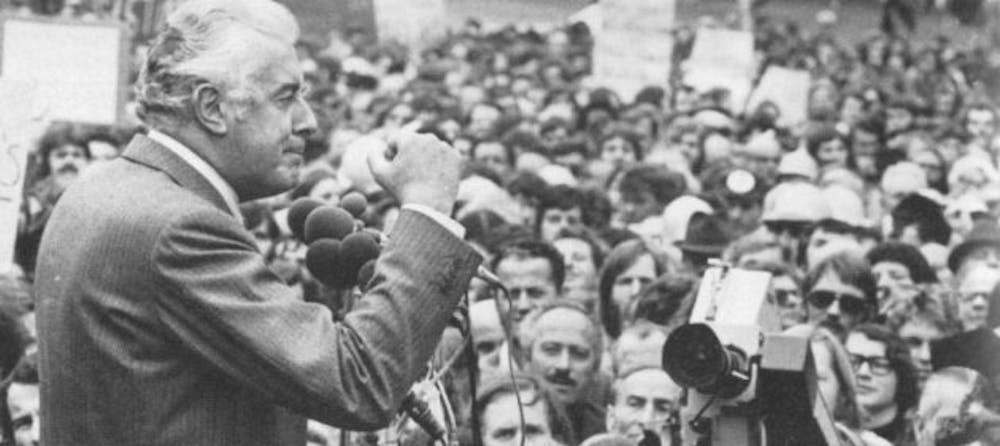
For half a century the Australian Labor Party has lived in fear of the same thing happening again, and has bent over backwards to prove its loyalty to the U.S. “Nuked” concludes: “Morrison left many legacies when he was driven from office by an irate public, and there was a chance after Labor took over in 2022 to reassess the AUKUS debacle, with all of its wishful thinking, and deal with at least some of the structural problems it threw up.”
“But Labor lost the one chance it had to identify itself as independent and courageous and put the interests of the country ahead of its understandable desire to win government. The consequences of the fear that drove the ALP leadership to embrace AUKUS with barely a second thought will haunt them for years to come. Just as Morrison was only too willing to trade Australian’s independence for the chance to win an election, so too was Labor. Now it is left to make work a deeply flawed scheme that, more than ever before, ties Australia’s future to whoever is in the White House.”
Jobs For The Boys
And what has happened to Scott Morrison, who retired from politics in 2024? “Along with Trump’s former CIA Director, Mike Pompeo, Morrison became a strategic adviser to U.S. asset management firm DYNE Maritime, which launched a $157 U.S. million fund to invest in technologies related to AUKUS. DYNE Maritime was established by an Australian former JP Morgan investment banker, Matthew Kibble, and an ex-US Navy surface warfare and intelligence officer, Tom Hennessey.”
“Morrison also became Vice-Chair of American Global Strategies (AGS), headed by former Trump National Security Advisor Robert O’Brien. AGS, stacked with former Pentagon, White House and State Department officials, boasts that it ‘assists clients as they navigate U.S. government processes,’ a useful addition to any company wanting to boost profits in the burgeoning area of military spending.”
New Zealand & AUKUS
I’m a New Zealander but, like a huge number of my compatriots, one with ties to our closest neighbour (I’m a quarter Australian). So, we take a keen interest in what happens there. In relation to AUKUS, were we upset that France got shafted? Not a bit of it; couldn’t have happened to a more deserving country. In the Pacific, France is the last of the old school imperialists. It is not many years ago that it used its Pacific colonies for nuclear testing. 2024 has seen an indigenous uprising in its biggest Pacific colony, New Caledonia (Kanaky).
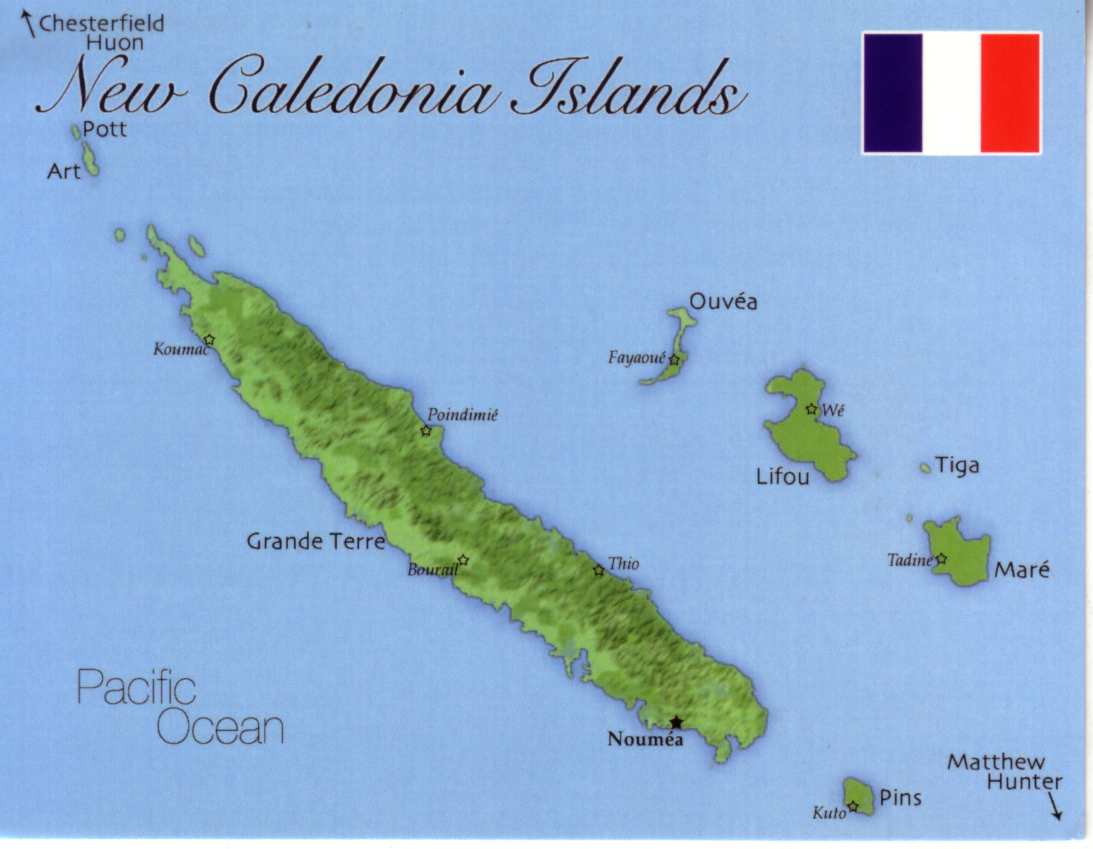
And, of course, New Zealand has history with France. In the 1980s it sent a hit team of intelligence agents to bomb Greenpeace’s Rainbow Warrior at dock in Auckland, New Zealand’s biggest city (to prevent it protesting at those French nuclear tests). The bombing killed one crew member. A couple of the hit team agents were caught, tried, convicted and imprisoned (French pressure, threatening a trade boycott of New Zealand, got them released). Several of the killers got away on a yacht which took them to an Australian island. From there they were picked up and whisked home – by a French submarine.
There are plenty of similarities between Australia and New Zealand but also significant differences. Whereas Australian governments of either party fall over themselves to loyally serve the U.S. empire, New Zealand has been nuclear free by law since the 1980s (and it was an Australian Labor government, on behalf of the U.S., which tried to pressure New Zealand to drop the policy. That pressure backfired).
The nuclear free law has held up through several changes of Government in the forty years since. It has become a bipartisan sacred cow (rather like the Second Amendment in the U.S.).

It is the reason why New Zealand was never considered to be invited to join AUKUS (the nuclear free law bans nuclear powered, as well as nuclear armed, vessels from New Zealand waters). Nor has New Zealand been so enthusiastic to fight America’s wars—Australia rushed into Iraq in 2003; New Zealand refused to join.
But there is a constant push to get New Zealand further entangled in the U.S. war machine, including Pillar Two of AUKUS (which has been, thus far, only identified as involving “advanced military technology”). New Zealand currently has a very pro-American Government, which is already a non-member “partner” of NATO and which is eager to serve the U.S., whether by sending military personnel to the Red Sea to join the war against the Houthis, hosting the Five Eyes Waihopai spy base and getting actively involved in the U.S. militarisation of space.
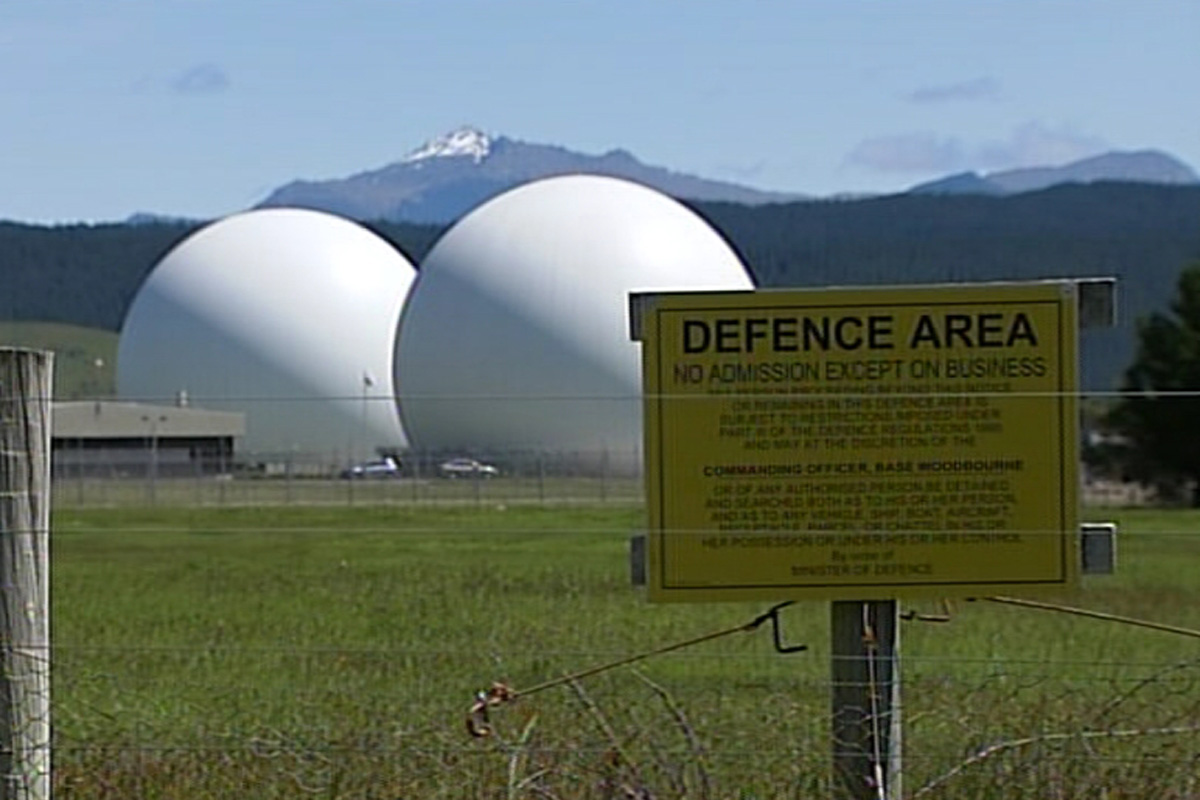
Not All New Zealand Politicians Lining Up To Grovel To Uncle Sam.
For a refreshing contrast, here’s an extract from a recent (2/10/24) press statement from Te Pāti Māori, the indigenous party, which has six Members of Parliament (out of 123). “Meanwhile the New Zealand Government is in talks with the United States about joining AUKUS to further support their war efforts. This represents the next phase of global colonisation, and it is being negotiated behind closed doors,” Co-Leader Rawiri Waititi said.
“The U.S. wants to use Aotearoa as a Pacific spy base. This could mean the end of our longstanding nuclear free policy to allow their war ships into our waters. AUKUS threatens our sovereignty as an independent nation, and the Mana Motuhake of every nation in the Pacific. It threatens to drag Aotearoa into World War 3,” said Waititi.
“The New Zealand government is putting everyone in Aotearoa at risk through their complicity. They must end all talks about joining AUKUS immediately. They must sanction Israel and cut ties with all countries who are committing and aiding war crimes,” said Co-Leader Debbie Ngarewa-Packer.
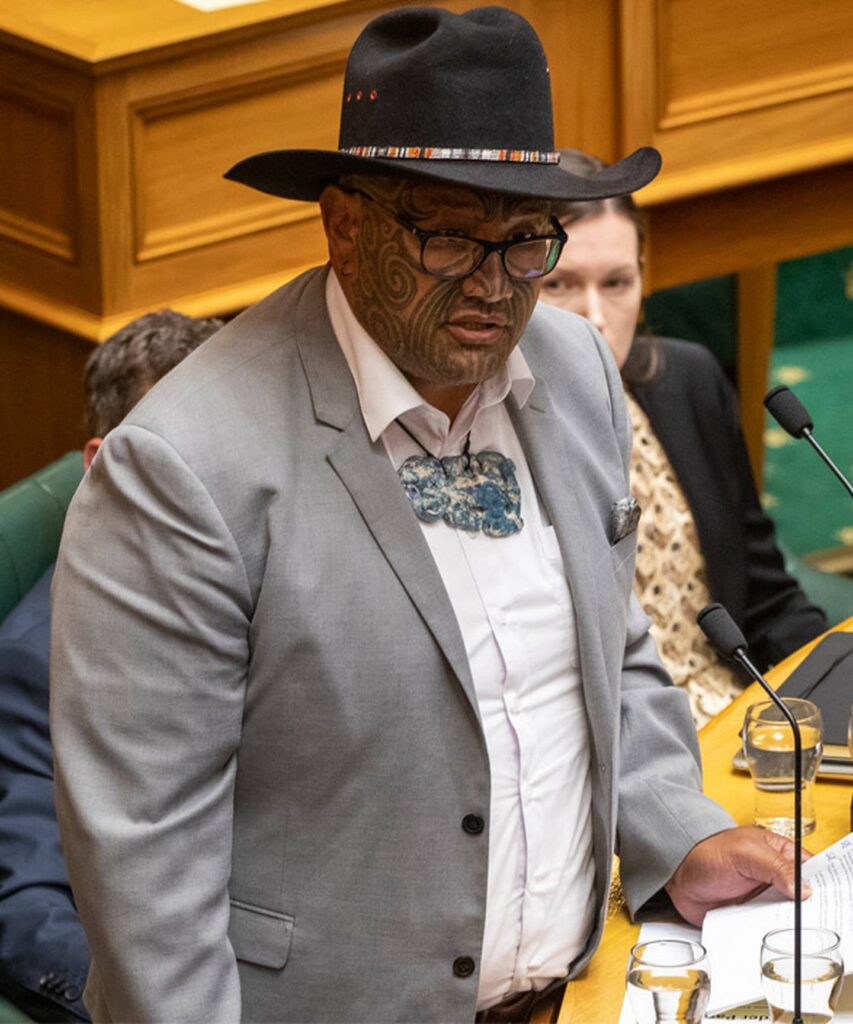
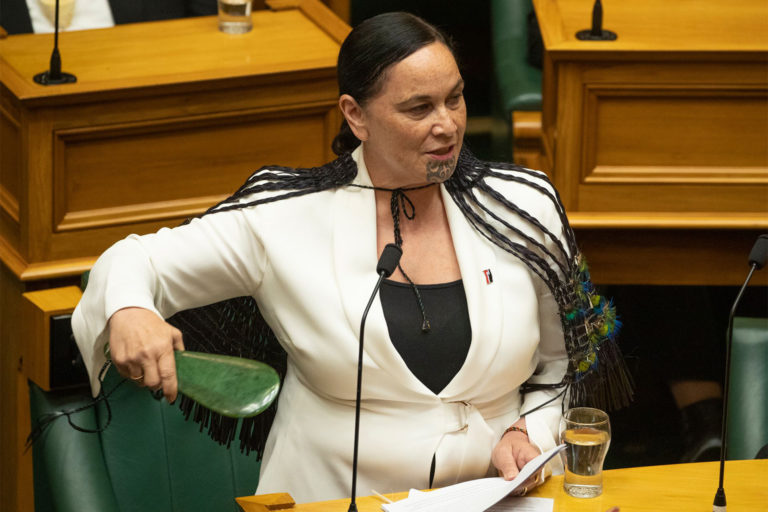
As Tangata Whenua we will not allow our sovereignty to be determined by others, whether it is the New Zealand government or the United States government,” said Waititi (Aotearoa—indigenous name for New Zealand. Mana Motuhake—self-determination, independence, sovereignty, authority. Tangata Whenua—original people of the land. MH).
Actually, the New Zealand military is primarily a threat to its own personnel. At the time of writing (October 2024), our Navy has somehow succeeded in sinking one of its own $NZ 100 million ships (no lives were lost). China has nothing to fear from us just yet.

CovertAction Magazine is made possible by subscriptions, orders and donations from readers like you.
Blow the Whistle on U.S. Imperialism
Click the whistle and donate
When you donate to CovertAction Magazine, you are supporting investigative journalism. Your contributions go directly to supporting the development, production, editing, and dissemination of the Magazine.
CovertAction Magazine does not receive corporate or government sponsorship. Yet, we hold a steadfast commitment to providing compensation for writers, editorial and technical support. Your support helps facilitate this compensation as well as increase the caliber of this work.
Please make a donation by clicking on the donate logo above and enter the amount and your credit or debit card information.
CovertAction Institute, Inc. (CAI) is a 501(c)(3) non-profit organization and your gift is tax-deductible for federal income purposes. CAI’s tax-exempt ID number is 87-2461683.
We sincerely thank you for your support.
Disclaimer: The contents of this article are the sole responsibility of the author(s). CovertAction Institute, Inc. (CAI), including its Board of Directors (BD), Editorial Board (EB), Advisory Board (AB), staff, volunteers and its projects (including CovertAction Magazine) are not responsible for any inaccurate or incorrect statement in this article. This article also does not necessarily represent the views the BD, the EB, the AB, staff, volunteers, or any members of its projects.
Differing viewpoints: CAM publishes articles with differing viewpoints in an effort to nurture vibrant debate and thoughtful critical analysis. Feel free to comment on the articles in the comment section and/or send your letters to the Editors, which we will publish in the Letters column.
Copyrighted Material: This web site may contain copyrighted material the use of which has not always been specifically authorized by the copyright owner. As a not-for-profit charitable organization incorporated in the State of New York, we are making such material available in an effort to advance the understanding of humanity’s problems and hopefully to help find solutions for those problems. We believe this constitutes a ‘fair use’ of any such copyrighted material as provided for in section 107 of the US Copyright Law. You can read more about ‘fair use’ and US Copyright Law at the Legal Information Institute of Cornell Law School.
Republishing: CovertAction Magazine (CAM) grants permission to cross-post CAM articles on not-for-profit community internet sites as long as the source is acknowledged together with a hyperlink to the original CovertAction Magazine article. Also, kindly let us know at info@CovertActionMagazine.com. For publication of CAM articles in print or other forms including commercial internet sites, contact: info@CovertActionMagazine.com.
By using this site, you agree to these terms above.
About the Author

Murray Horton is organizer of the Campaign Against Foreign Control of Aotearoa (CAFCA) and an advocate of a range of progressive causes for the past five decades.
He can be reached at: cafca@chch.planet.org.nz.

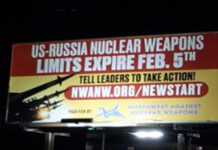
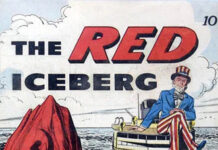



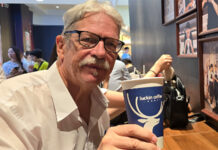
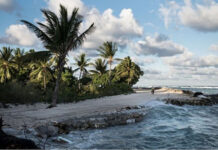

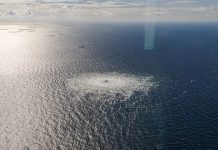

““Nuked” specifically attributes Labor’s fervent desire not to be seen as “anti-American” to the events of 1975, when the Central Intelligence Agency and its local collaborators, succeeded in getting Gough Whitlam’s Labor government overthrown in a bloodless coup.”
And let us also not forget the mystery of Prime Minister Harold Holt, who disappeared whilst swimming in 1967. He was widely seen as a very strong swimmer who was very familiar with the local tides. No body was ever recovered despite a massive search.
This has led to speculation that he was the victim of CIA assassination ordered by President Johnson due to suspicion that he wished to pull Australian troops out of Vietnam.